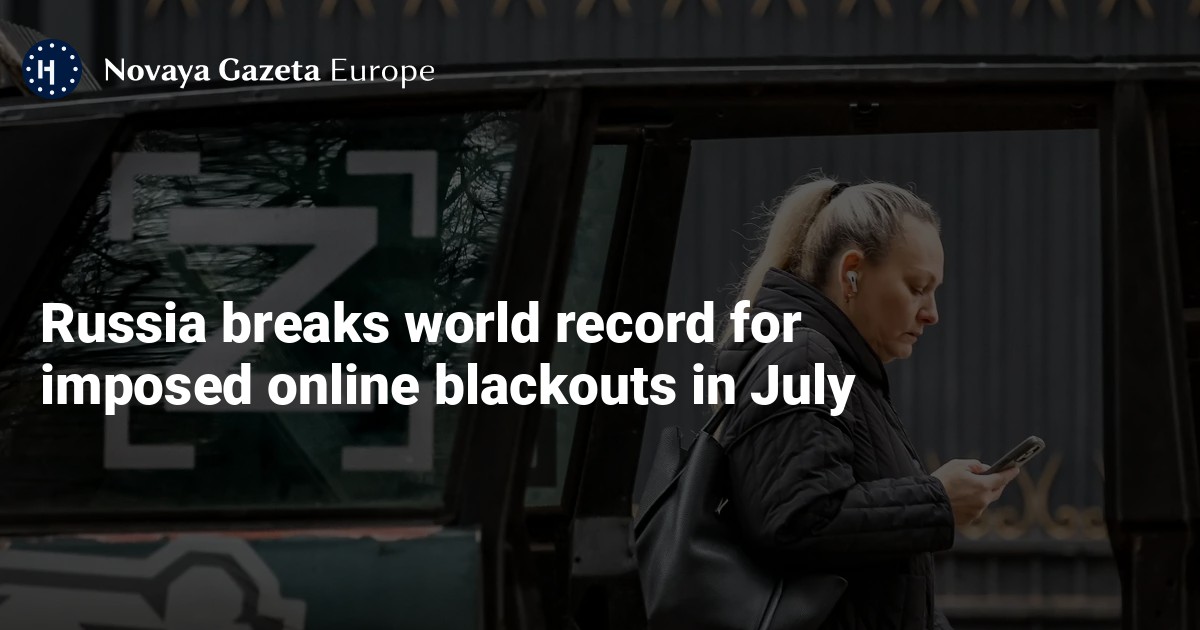



A woman walks past a Z symbol in Moscow, 28 October 2024. Photo: EPA / YURI KOCHETKOV
The Russian authorities were responsible for over 2,000 localised Internet shutdowns and restrictions in July, more than double the tally recorded in June and a new world record, the Na Svyazi digital monitoring project reported on Friday, while noting the true figure may exceed recorded data.
Localised Internet and cellular data shutdowns have been a common occurrence across Russia since the start of June, with almost every region experiencing temporary blackouts at least once since then, according to Na Svyazi, and some parts of central and southern Russia experiencing imposed outages nearly constantly.
Mass Internet and cellular shutdowns, explained by the authorities as part of the fight against Ukrainian drones, can cost regional economies up to 750 million rubles (€8.2 million) per hour, according to the Internet Defence Society, a Russian online freedom advocacy group.
“These shutdowns occur irrespective of any drone attack threat; in some regions, no threat level has ever been declared, yet digital shutdowns still took place,” Na Svyazi analysts wrote.
According to data from Access Now, a digital rights NGO, there were only 296 digital shutdowns recorded globally in 2024, with Russia’s 13 putting it fourth in that year’s world rankings after Myanmar (85), India (84) and Pakistan (21).
According to Na Svyazi, only 10 internet shutdowns were recorded in Russia from January to April 2025. That number climbed to 69 in May and jumped nearly tenfold to 662 in June, prior to July’s record tally of 2,099.
Many Russians began experiencing internet and cellular data outages for the first time in early May, most notably when the annual Victory Day parade celebrations in Moscow were accompanied by intentional mobile service blackouts across the city.
Internet shutdowns occur when data transmission is cut off at the provider level, effectively shutting down all 4G, 3G, and signal traffic.
This is possible because, under Russian law, all mobile traffic must now pass through Deep Packet Inspection (DPI) devices, traffic-monitoring devices that Russia’s mobile network operators installed, but which Roskomnadzor, Russia’s media regulator, controls.
Imposed shutdowns can deprive Russians of the ability to communicate via the Internet and cellular data-connected messaging services, and in some cases have prevented them from escaping Ukrainian drone attacks.
